The Tokyo Edition, Ginza Is A Perfect Perch For Exploring Japan’s Capital
A five-star luxury hotel in the heart of one of Tokyo’s hottest neighborhoods.
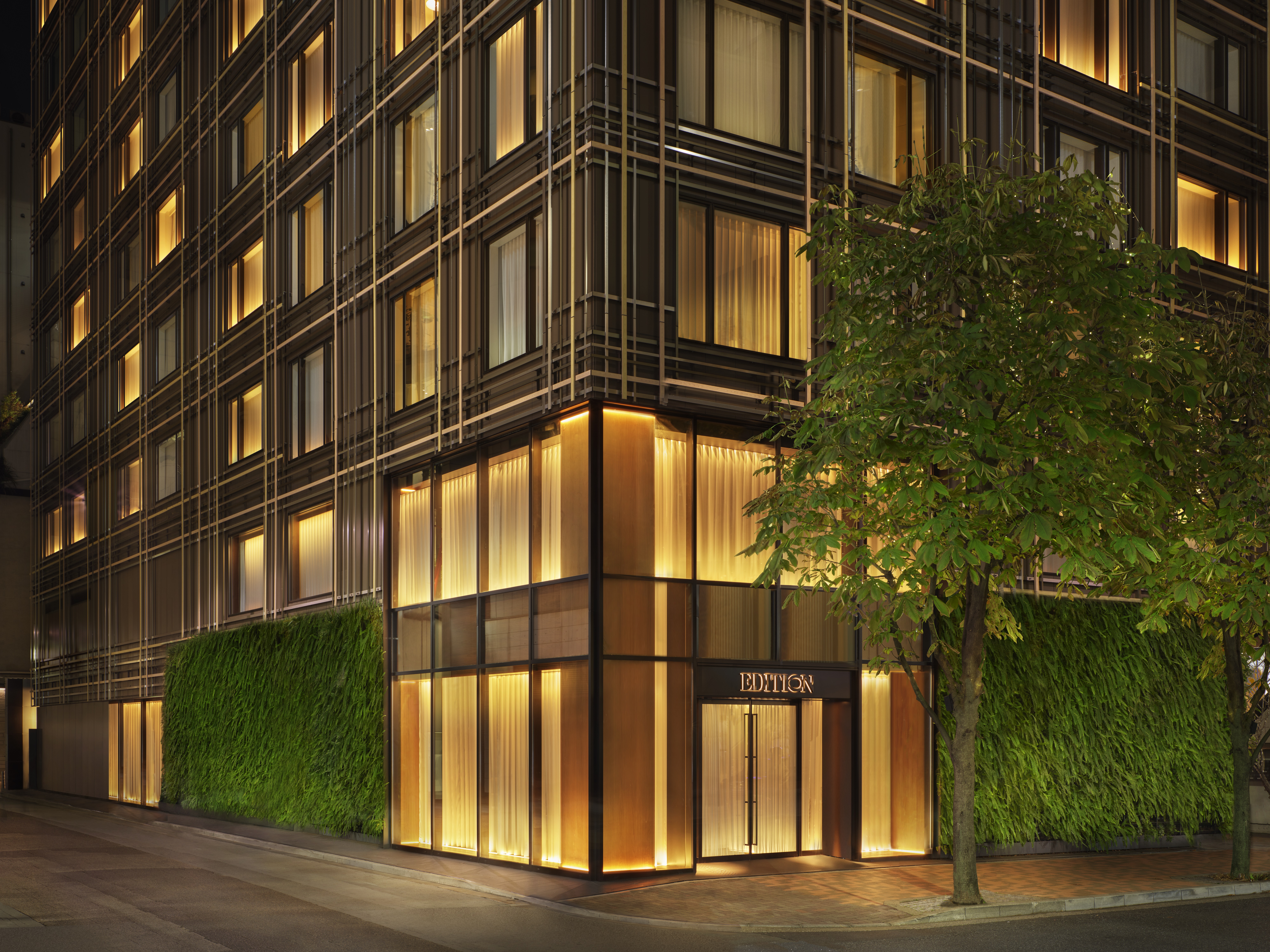
The new Tokyo Edition, Ginza hotel brings sleek modern luxury and coddling hospitality to the heart of Japan’s poshest shopping district. Ginza is the perfect neighborhood to stay in Tokyo, both for its walkability and the fact that it’s the luxury shopping heart of the city––particularly appealing with recent favorable exchange rates. The latest Ginza puts you right in the action while still offering guest rooms with a serenity that you’d probably never want to leave if the world’s most interesting city weren’t right outside. I recently visited Japan to meet the minds behind the most exciting new Japanese whisky brand: Kanosuke. On my final night in the capital before heading home, my wife and I stayed at the Tokyo Edition, Ginza as the finale of a life-changing trip (or at least perspective-altering) trip.
CHAMPAGNE AND CLUB CHAIRS

When we rolled our luggage off the busy sidewalk into the modern wood-paneled lobby, we were met by a half-dozen staff in sleek black suits, speaking English so well it was jarring after a week in-country. The lobby’s centerpiece is a dramatic white staircase that zig-zags upwards to Punch Room, the flagship bar inspired by 19th century English private clubs (more on that later). Moments later our luggage was whisked away, and we were sitting on leather club chairs in the lobby bar sipping complimentary Champagne while the front desk checked us in.
For the past four nights we’d been staying in Japanese hotels not geared towards Westerners. I loved the immersion––especially ditching omelets and pancakes for Japanese breakfasts with sushi and miso soup and Bento boxes and learning to get by with a few key Japanese phrases and Google Translate. But walking into a hotel where the language barrier vanished did open up new doors. Suddenly you can ask subtler questions: “what’s the vibe of that restaurant,” etc. Stuttering through basic phrases is a fun mental exercise when things are going well, but we soon learned that if you hit a snag, being able to revert to your mother tongue is awfully nice.
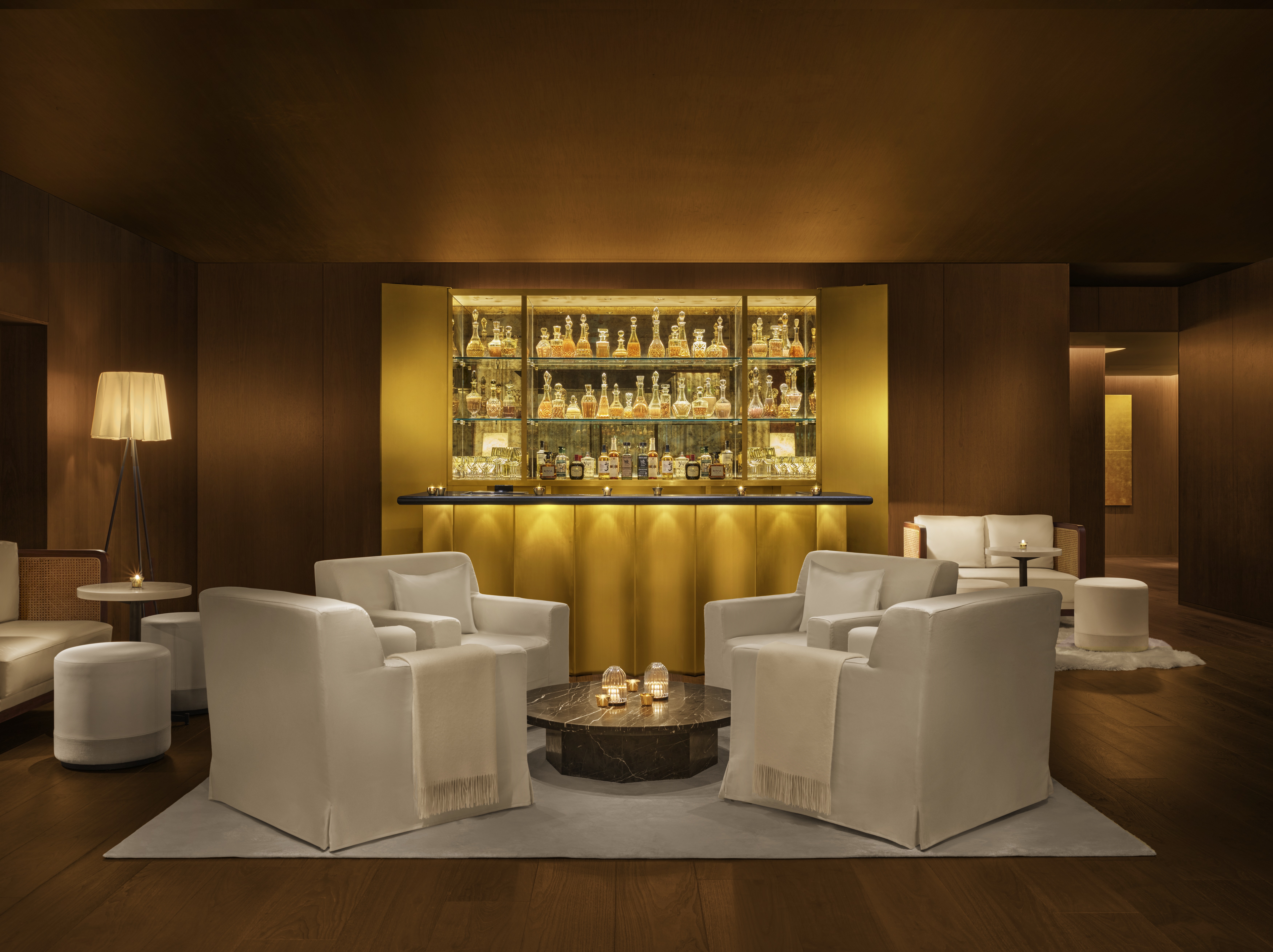
While unpacking, my wife realized that she left her laptop on the plane from Kagoshima. We had just checked into the most incredible room in the most enticing city I’ve ever visited, and now I could suddenly see our afternoon devoured by calls to the airline. After staring at each other for an “Oh F%CK” moment, I said “Call the front desk!” The person who picked up (on the first ring) was a former flight attendant, and within ten minutes she had not only located the laptop but had arranged to have it delivered to our terminal before our flight home the next day. Now, that’s partly just the essential honesty of the Japanese––if you lose so much as an AirPod on the subway you can find it in the Lost and Found a few hours later (true story from our Kanosuke handler). But it would have taken us a very long time to get to that conclusion on our own and we would have blown our last day in Tokyo in the process.
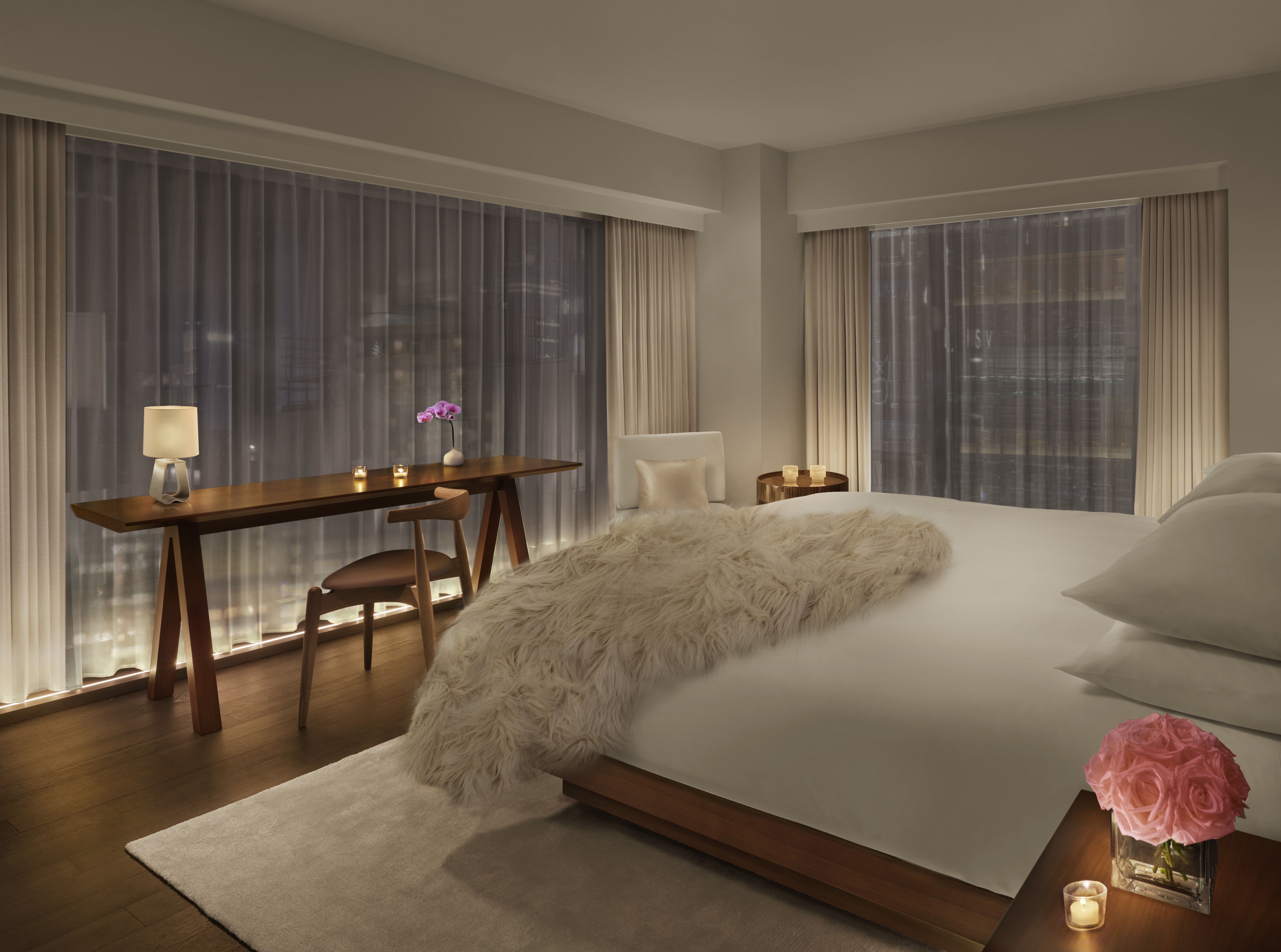
Our room was jaw-dropping. Sleek and sexy, with wood paneling, gallery white walls, and a massive window onto the street below. The mini bar was a treasure box that unfolded out of the satin-finished wood built-ins, and the bed seemed to float off the floor. A banquette couch under the window made you want to sit and stare like a cat at the people passing below. Tokyo can bustle without being loud, so you get all the people watching you’d expect from the most populous city on earth, but without any of the cacophony of car horns and other urban ear assaults. As hard it was to leave the room, it was time to do some exploring.
THE OMAKASE OF SHOPPING
Ginza is the perfect neighborhood for a final day to-do list. As you ponder what you might want to buy and bring home, like duty free Japanese whisky, artisan chopsticks, or a Damascus chef’s knife, it’s all within walking distance of the hotel. You can get lost in the massive Mitsukoshi department store a five minute walk away, or gawk at the eye candy in the Grand Seiko boutique, or pick up some staples at the Muji global flagship––all in one afternoon stroll. (Pro tip: Mitsukoshi’s 8th floor has a Duty Free shop that sells Japanese whiskies you can’t buy in the U.S. If you can get there at least the day before your flight, it will be waiting for you at the airport when you leave. Don’t wait for the airport duty free, because the line is insane, and the options aren’t worth it.)
WAGYU AND WILD COCKTAILS
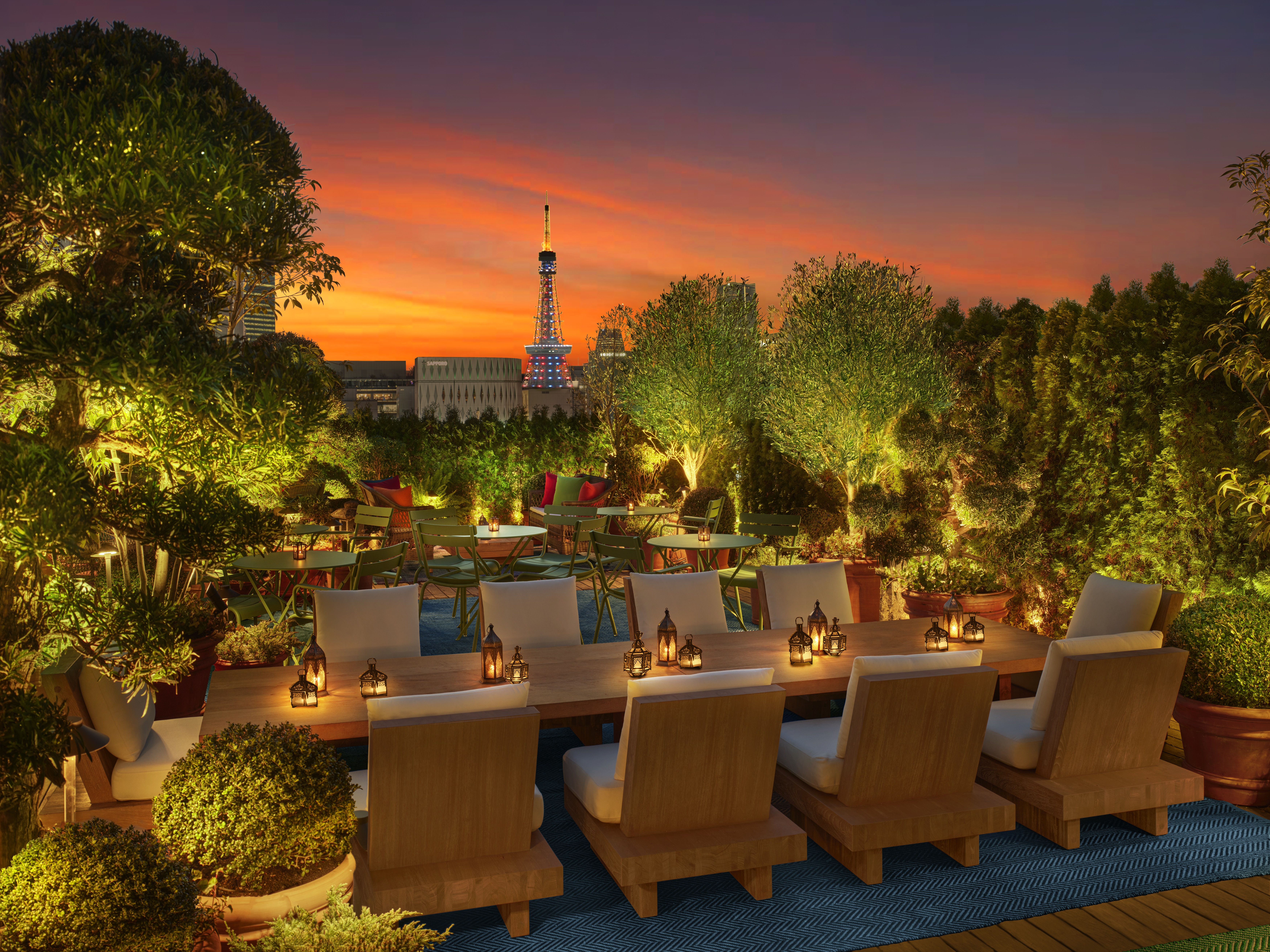
We started out the night with cocktails and truffle fries at The Roof, the hotel’s open-air rooftop bar. They very cleverly surrounded the rooftop with walls of live greenery that hide the adjacent buildings that draw your eyes to the distant skyline beyond the immediate neighborhood, creating a sense of expanse for the otherwise intimate patio.
After the aperitivo hour, we grabbed a cab to the nearby Peninsula Hotel for dinner and drinks at Peter, a luxury steakhouse with sweeping views of the Imperial Palace grounds. Walking into the restaurant takes you down a pathway lined with neon-purple-lit pillars resembling the vertebrae of a whale. It is a totally unique and different version of Tokyo luxury than where we were staying, and the penthouse setting offers 360-degree views from nearly everywhere. In fact, it may be the best Men’s Room view I’ve ever seen in my life. The view was Japanese, the waiter was French, and the menu was a combination of the two. We had foie gras, seared marinated tuna that went down like candy, and an A5 tenderloin.
WHERE THE DRINKS HAVE NO NAME

After dinner we went to Bar Orchard Ginza for a strange and theatrical cocktail experience where the cocktail menu was a bowl of fruit, and whatever piece you pointed to became the basis for an improvised drink served in a campy vessel such as an inflatable palm tree. It was a memorable experience, but the unspoken social pressure to constantly act amazed at the reveal of each new drink wore thin after our second round.
On a whim in the elevator on the way out, we pushed the button for another mystery bar in the same building and ended up in a cocktail time warp where a patrician barman in a white dinner jacket piddled with classic cocktails, while his younger apprentice (and dead ringer for Peter Lorre) repeatedly barked “no pictures.” After paying a mandatory cover charge on top of the so-so cocktails, the picture ban was a tough pill to swallow.
We ended the night at the Ginza Edition’s flagship bar, Punch Room. The cocktail menu’s theme is based around punches with a global and cultural mashup. Like the Choco Banana & Apple, which is a fizz that mixes rum, Lillet blanc and black tea. Or the Clear Hanabi, which blends Don Julio blanco with gunpowder tea. It’s a cozy mezzanine space with wood paneling, couches you can sink into, and endlessly interesting libations. We were joined for a nightcap by Daniel Macias, a hotel manager who had come to Ginza from Times Square Edition. He regaled us with stories of the Tokyo expat life, which we openly envied.
SAYONARA
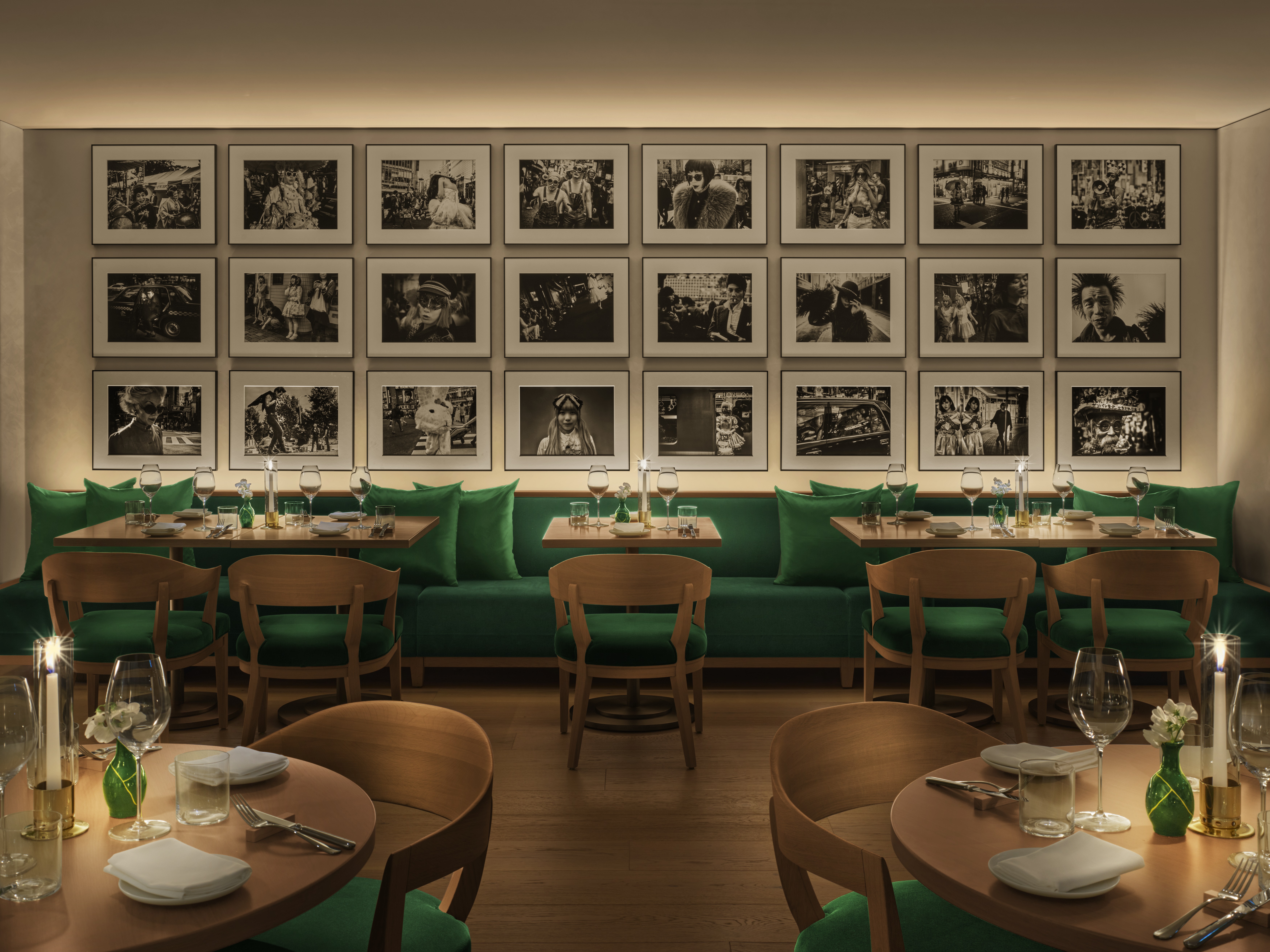
The next morning we went downstairs to Sophie, the hotel’s bright and airy restaurant, for our final Japanese breakfast before heading back the United States of eggs and bacon. We were already feeling pangs of nostalgia for the week we’d just had when the white-gloved driver loaded our suitcases into his trunk on a beautiful spring afternoon in Tokyo. It was a hard hotel to leave, in a hard city to leave. And however soon we make it back there won’t be soon enough.
